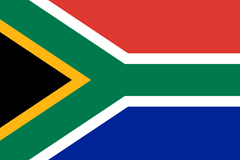 In November 2013, the South African Government passed a regulation designed to promote energy efficiency in commercial buildings. And, thanks to advice from the Clean Energy Solutions Center Ask an Expert service, this regulation has a good chance of succeeding.
In November 2013, the South African Government passed a regulation designed to promote energy efficiency in commercial buildings. And, thanks to advice from the Clean Energy Solutions Center Ask an Expert service, this regulation has a good chance of succeeding.
Barry Bredenkamp, senior manager at the South African National Energy Development Institute (SANEDI), reached out to the Solutions Center for help with a draft of the regulation, which is part of the South African National Energy Efficiency Strategy to improve energy efficiency by 15 percent in the commercial sector. The regulation:
- Provides tax incentives for businesses that can demonstrate measurable energy savings
- Includes tax incentives for all energy efficiency projects that reduce energy use
- Offers tax incentives for savings in all energy forms, not only electricity, which can be claimed until 2020
- Specifies the process for determining the amount of energy savings achieved through efficiency measures.
“SANEDI had a terrific start on an energy policy and good intentions for expanding efficiency in their commercial sector,” said Terri Walters, an international energy policy expert who provides consulting to countries through the Ask an Expert service. “I helped them think through the wording of their policy to see how it might affect their ability to administer the program. After working with them to make some mid-course corrections, their legislation has enough flexibility to give them a better chance of success.”
According to Walters, who has worked for more than 20 years in clean energy policy, legislative language can often have unintended consequences. Once language is set in a law or regulation, it can be very difficult to change.
“Any incentive policy walks a fine line between burden and incentive,” she said. “You want the incentive to be high enough to make it worthwhile for participants, but you need enough eligibility and reporting requirements to ensure that the program reaches its goals and does not waste taxpayer funds. In a new market, a policy can benefit from having flexibility to find the right balance.”
Over email and telephone conversations with Bredenkamp, Walters offered advice on modeling options for the program to quantify energy savings, provided best practices for setting incentive levels and program targets, reviewed draft regulation language and provided comments on policy design.
“The assistance the Ask an Expert service provided us has proved invaluable to our work,” said Bredenkamp. “Many thanks for all your help in making this a reality."
Like other experts who participate in the no-cost Ask an Expert service, Walters has extensive experience in developing clean energy policy—and she passes on the benefits of her experience to countries that request assistance.
“My job when working with countries through the Ask an Expert service is to help them craft language and design a program that gives them the best chance of success,” she said. “I’ve seen a wide range of clean energy policies over the years. While no two policies or markets are the same, I try to use my experience to help countries avoid common mistakes and benefit from others’ trial and error.”
